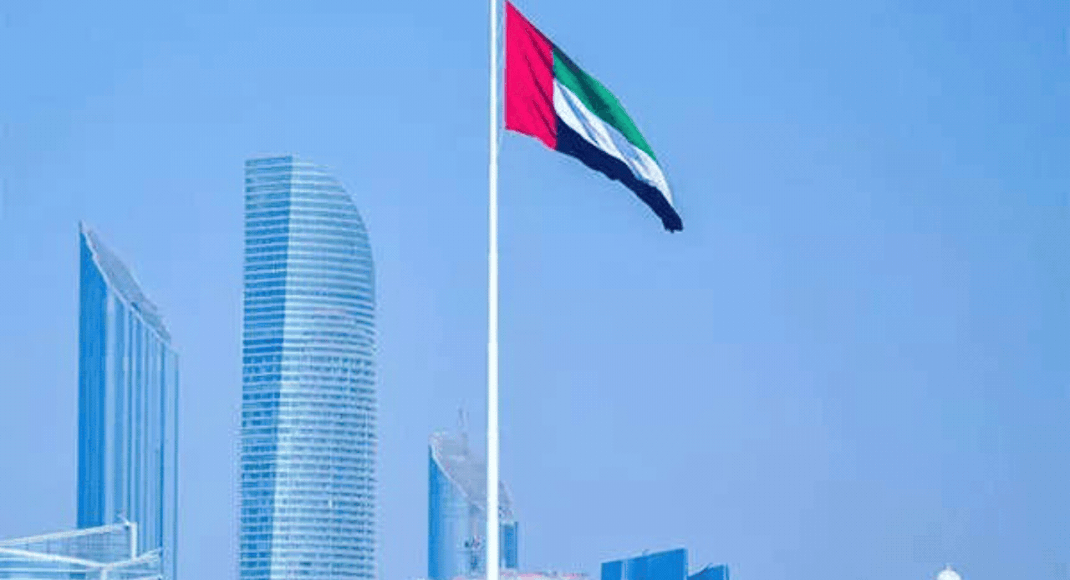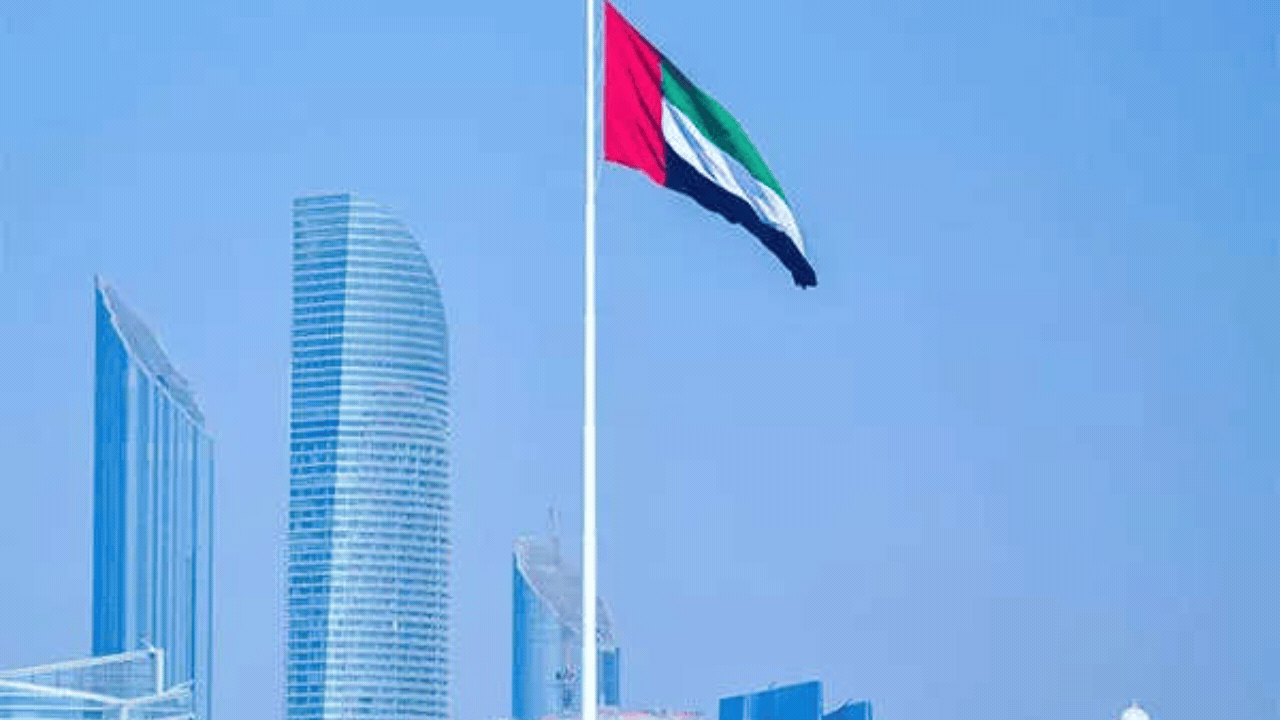[ad_1]
ABU DHABI: Researchers from the Khalifa University of Science and Technology’s Research & Innovation Centre for Graphene and 2D Materials (RIC2D) and the Research Innovation Centre on CO2 and Hydrogen (RICH) have collaborated with others from the University of Manchester to create a new device using graphene to transform next-generation technologies in hydrogen fuel cells, computing, and catalysis.
The research shows that the properties of a graphene sheet can be fine-tuned with the help of electric fields to independently host proton and electron currents, thus setting the stage for a device that serves both computer memory and logic functions.
Researchers have published their paper titled ‘Control of Proton Transport and Hydrogenation in Double-Gated Graphene’, in Nature, the multidisciplinary science journal.
Dr Ahmed Al Durra, senior vice-president, research and development, Khalifa University, said: “Khalifa University is delighted to lead and collaborate across disciplines on this groundbreaking discovery about graphene. Featured in Nature, this research breakthrough highlights the significant advancements in the material’s applications.
We strongly believe that our work on the computational aspects of this research will contribute to the development of future graphene-based technologies. The research endeavours of both RICH and RIC2D centres and leading international universities is a true testament to the strength of collaboration.”
Dr Marcelo Lozada-Hidalgo, senior lecturer and Royal Society University Research Fellow at the University of Manchester, scientist and lead of the contribution, said, “We hope that this understanding of the connection between electronic and ion transport properties in electrode-electrolyte interfaces in 2D materials will inspire various communities, including physics, catalysis, and interfacial science… It has been a pleasure to collaborate with RIC2D and the Khalifa University team and we are looking forward for many more collaborations between both institutions.”
The scientists leading from Khalifa University is Dr Lourdes Vega, Director of RICH and Theme lead of Energy and Hydrogen at RIC2D, and Dr Daniel Bahamon Garcia, Research Scientist at RIC2D.
The work was done in collaboration with other scientists from the University of Manchester and the University of Cambridge in the UK and Universidade Federal do Ceara in Brazil.
By using a technique known as double gating, where graphene is sandwiched between non-aqueous electrolytes and connected to gate electrodes on each side to induce electrons to flow through the sheet, researchers enabled independent control of proton transport and proton chemisorption (also known as hydrogenation).
By precisely tuning the voltages on the electrodes, the authors were able to enhance the perpendicular flow of protons through graphene.
Another combination of voltages induced hydrogenation of the crystal lattice and the associated transition to an insulating state, which compromises graphene’s superior electrical conductivity by disrupting the flow of electrons through the sheet.
Dr Vega said: “Such control between both the proton transport and the two conductive states (insulator and conductor) are so robust and reproducible that can be exploited to build a device that performs both memory and logic functions in a computer, a milestone achievement because it combines the functionalities of two devices into one and eliminates the need for other circuits to link them. The discovery can also have implications in proton-conducting membranes for hydrogen, catalysis and isotope separation.”
RICH is the only dedicated centre in the UAE, and the first in the region focused on carbon capture, utilisation and storage, hydrogen and its derivatives, and sustainable fuels. RIC2D continues to expand its range of collaborations to lead innovations in graphene and 2D materials.
The research shows that the properties of a graphene sheet can be fine-tuned with the help of electric fields to independently host proton and electron currents, thus setting the stage for a device that serves both computer memory and logic functions.
Researchers have published their paper titled ‘Control of Proton Transport and Hydrogenation in Double-Gated Graphene’, in Nature, the multidisciplinary science journal.
Dr Ahmed Al Durra, senior vice-president, research and development, Khalifa University, said: “Khalifa University is delighted to lead and collaborate across disciplines on this groundbreaking discovery about graphene. Featured in Nature, this research breakthrough highlights the significant advancements in the material’s applications.
We strongly believe that our work on the computational aspects of this research will contribute to the development of future graphene-based technologies. The research endeavours of both RICH and RIC2D centres and leading international universities is a true testament to the strength of collaboration.”
Dr Marcelo Lozada-Hidalgo, senior lecturer and Royal Society University Research Fellow at the University of Manchester, scientist and lead of the contribution, said, “We hope that this understanding of the connection between electronic and ion transport properties in electrode-electrolyte interfaces in 2D materials will inspire various communities, including physics, catalysis, and interfacial science… It has been a pleasure to collaborate with RIC2D and the Khalifa University team and we are looking forward for many more collaborations between both institutions.”
The scientists leading from Khalifa University is Dr Lourdes Vega, Director of RICH and Theme lead of Energy and Hydrogen at RIC2D, and Dr Daniel Bahamon Garcia, Research Scientist at RIC2D.
The work was done in collaboration with other scientists from the University of Manchester and the University of Cambridge in the UK and Universidade Federal do Ceara in Brazil.
By using a technique known as double gating, where graphene is sandwiched between non-aqueous electrolytes and connected to gate electrodes on each side to induce electrons to flow through the sheet, researchers enabled independent control of proton transport and proton chemisorption (also known as hydrogenation).
By precisely tuning the voltages on the electrodes, the authors were able to enhance the perpendicular flow of protons through graphene.
Another combination of voltages induced hydrogenation of the crystal lattice and the associated transition to an insulating state, which compromises graphene’s superior electrical conductivity by disrupting the flow of electrons through the sheet.
Dr Vega said: “Such control between both the proton transport and the two conductive states (insulator and conductor) are so robust and reproducible that can be exploited to build a device that performs both memory and logic functions in a computer, a milestone achievement because it combines the functionalities of two devices into one and eliminates the need for other circuits to link them. The discovery can also have implications in proton-conducting membranes for hydrogen, catalysis and isotope separation.”
RICH is the only dedicated centre in the UAE, and the first in the region focused on carbon capture, utilisation and storage, hydrogen and its derivatives, and sustainable fuels. RIC2D continues to expand its range of collaborations to lead innovations in graphene and 2D materials.
[ad_2]
Source link

